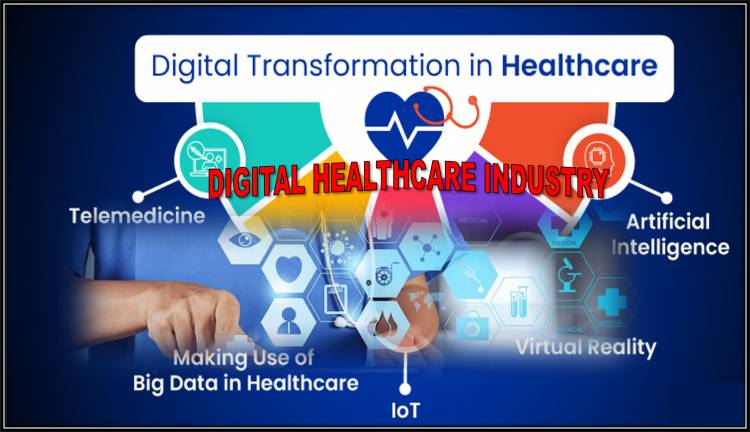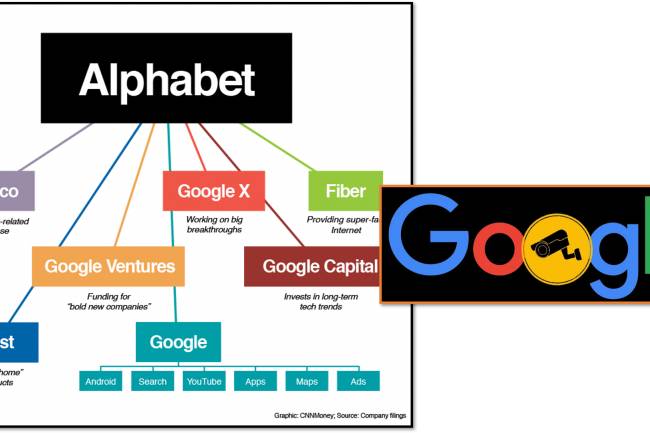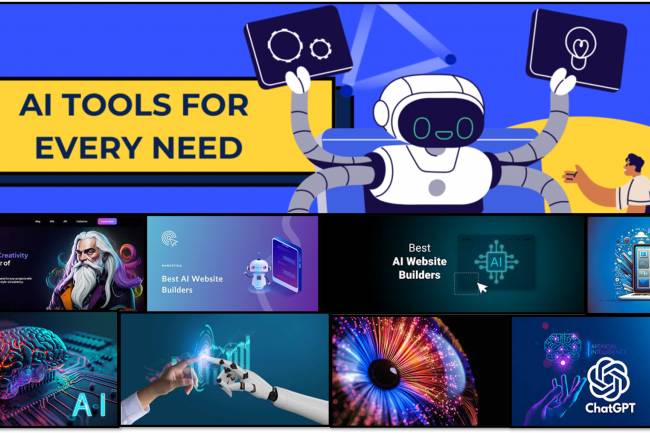
The Digital Healthcare Industry
The Digital Healthcare Industry
The digital healthcare industry is a rapidly growing field that combines healthcare services with digital technology to improve patient outcomes, increase healthcare system efficiency, and increase access to medical services. It includes a wide range of technologies, solutions, and platforms, including telemedicine, wearables, mobile health apps, and artificial intelligence (AI)-powered tools.
Contents
1. Key Components of the Digital Healthcare Industry. 1
2. Market Development and Trends. 1
4. Challenges in the digital healthcare industry. 2
5. The future of digital healthcare. 3
6. Regulatory and ethical considerations. 3
Below is a detailed breakdown of the digital healthcare industry:
1. Key Components of the Digital Healthcare Industry
- Telemedicine: Enables remote consultations between healthcare professionals and patients via video calls, phone calls, or messaging platforms. It became increasingly popular during the COVID-19 pandemic as a way to provide care without in-person visits.
- Wearable Devices: These include fitness trackers, smartwatches, and medical-grade devices that monitor vital signs such as heart rate, oxygen levels, sleep patterns, and more. Examples include Fitbit, Apple Watch, and wearable ECG monitors.
- Mobile health (mHealth) apps: Apps designed to help users track their health metrics, manage chronic conditions, and even receive virtual doctor consultations. Examples include diabetes management apps, mental health apps, and fitness apps.
- Electronic health records (EHR): A digital system for storing patient data, allowing for better organization, access, and sharing of medical information between healthcare providers. They span the continuum of care across multiple healthcare systems.
- Artificial intelligence (AI) in healthcare: AI is used for predictive analytics, medical image analysis, virtual health assistants, and automated administrative tasks. AI-powered tools can diagnose diseases, predict patient outcomes, and help plan personalized treatments.
- Remote patient monitoring (RPM): Technologies are used that allow healthcare providers to remotely monitor patient health data, often used to manage chronic conditions such as diabetes, heart disease, and high blood pressure. The devices track health metrics in real time and share data with healthcare providers.
- Blockchain in Healthcare: It is used to securely store and share patient health data, improve data security, and ensure the integrity of medical records. Blockchain can also improve interoperability between different healthcare systems.
2. Market Development and Trends
- Global Growth: The digital healthcare industry is expected to grow significantly in the coming years. According to some estimates, the global digital healthcare market is expected to reach over $500 billion by 2027, with strong contributions from telemedicine, wearable technology, and healthcare IT solutions.
- Telemedicine Expansion: Telemedicine is expected to remain a key component of digital healthcare, driven by regulatory support, patient convenience, and reduced healthcare costs. The industry has seen regulatory changes in many countries, making telehealth services payable under insurance plans.
AI and Machine Learning: AI-based tools are expected to grow rapidly, including applications in diagnostics, clinical decision support, and drug discovery. AI adoption is accelerating the shift toward personalized healthcare, where treatment plans are tailored to each patient based on their genetic, environmental, and lifestyle factors.
- mHealth and Wearables: Demand for wearables and health-related apps continues to grow as consumers look for ways to track fitness, health conditions, and overall health. Wearable devices are increasingly integrated with healthcare systems, allowing for more comprehensive health tracking.
- Mental Health Solutions: The use of digital healthcare tools, such as mental health apps and teletherapy, has seen a surge, especially during and after the COVID-19 pandemic. These tools provide accessible and affordable mental health care to consumers around the world.
3. Major industry players.
- Tech companies: Companies like Google, Apple, and Microsoft are heavily involved in the digital healthcare space, offering platforms for health data management, wearables, and AI-based diagnostics.
- Healthtech startups: Startups like Teladoc Health, Babylon Health, and Livongo are innovating in telemedicine, virtual care, and chronic disease management.
Pharmaceutical companies: Many pharmaceutical companies are investing in digital healthcare tools, using AI for drug discovery, remote monitoring tools for clinical trials, and digital therapies.
- Healthcare providers: Major healthcare systems are adopting digital tools to improve efficiency, reduce costs, and enhance patient care. Providers like Kaiser Permanente and Cleveland Clinic have embraced telemedicine and AI-based diagnostics.
4. Challenges in the digital healthcare industry
- Data privacy and security: As more healthcare data is digitized, concerns about data breaches, cyberattacks, and unauthorized access to sensitive health information are increasing. Ensuring compliance with regulations such as the Health Insurance Portability and Accountability Act (HIPAA) in the US or the General Data Protection Regulation (GDPR) in Europe is critical.
- Interoperability: Many healthcare systems and platforms still struggle with seamless data exchange between different systems, inhibiting the full potential of digital healthcare tools. Ensuring data can flow between different EHR systems and other healthcare IT tools is a key challenge.
- Regulatory barriers: The regulatory landscape for digital health technologies can be complex. Companies must navigate multiple local and international laws and guidelines to gain approval for their solutions, especially when it comes to AI-based diagnostics, telemedicine, and digital therapies.
- Patient adoption: While demand for digital health solutions is growing, not all patients are comfortable using these technologies. Factors such as age, access to technology, and digital literacy can impact patient adoption rates.
5. The future of digital healthcare
- Precision medicine: Advances in genomics and big data analytics are paving the way for personalized treatment plans based on an individual’s genetic profile. This shift toward precision medicine is expected to revolutionize the way diseases are treated.
- Integration of AI in healthcare: AI will continue to play an increasingly prominent role, especially in diagnosis, clinical decision-making, and administrative processes. AI can reduce human error, improve patient outcomes, and streamline workflows.
- 5G and IoT: The deployment of 5G networks will further enhance digital healthcare capabilities, particularly in remote monitoring and telemedicine. Faster connectivity will enable real-time data transfer and better integration of IoT devices into healthcare.
- Robotics and automation: Robot-assisted automation of surgery and routine administrative tasks will improve healthcare delivery by reducing human error and improving operational efficiency.
- Global expansion: As digital healthcare becomes more accessible, it has the potential to close gaps in healthcare delivery, particularly in rural and underserved areas where access to medical professionals is limited.
6. Regulatory and ethical considerations
- Regulation and compliance: Governments are developing regulations to ensure that digital health technologies are safe, effective, and secure. In many countries, telemedicine platforms must follow strict guidelines to ensure patient privacy and data security.
- Ethics in AI and data use: The ethical use of AI in healthcare, including algorithmic bias, patient consent, and transparency, is an important area of focus for policymakers and healthcare providers.
The outcome
The digital healthcare industry is changing the way healthcare is delivered, making it more efficient, accessible, and personalized. With continued advancements in technology, such as AI, IoT, and 5G, the industry is poised for significant growth in the coming years. However, challenges related to data security, regulation, and patient adoption need to be addressed to fully realize the potential of digital healthcare solutions.



















